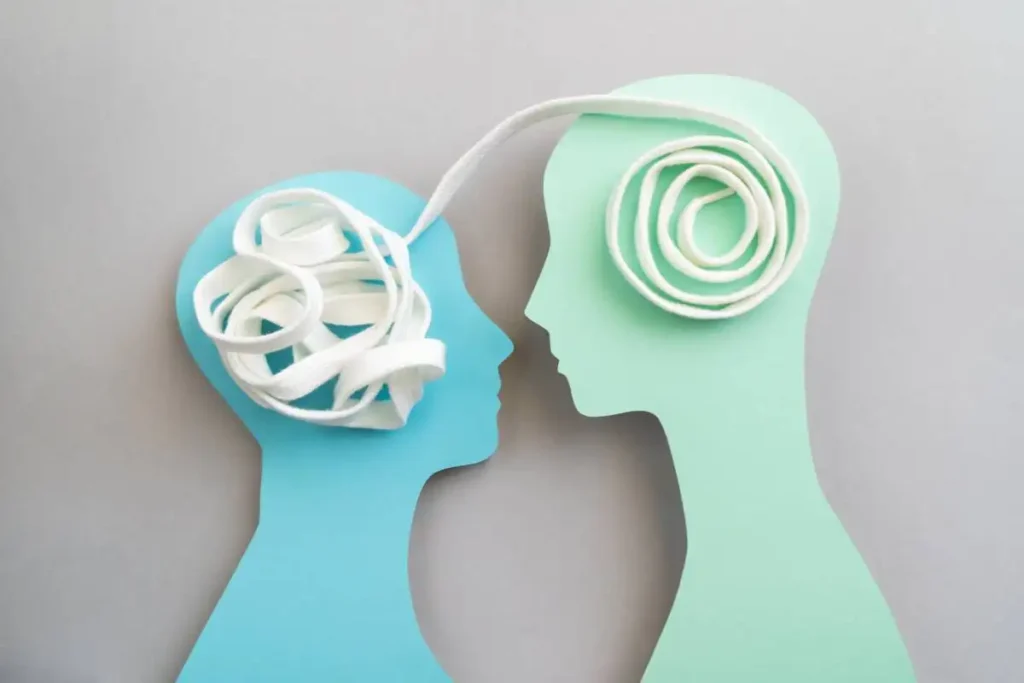Ever wondered how autism impacts long-term relationships? You’re not alone. As someone on the spectrum, I’ve had my fair share of ups and downs in the romance department. Let’s dive into the world of long-term relationships and autism, exploring the challenges, triumphs, and everything in between.
The Autism-Relationship Connection
Autism and relationships can be a tricky combo. Our unique way of processing the world often leads to misunderstandings and communication hiccups. But here’s the kicker: with the right tools and understanding, autistic individuals can build incredibly strong, lasting partnerships.
Challenges We Face
Communication Conundrums
Let’s face it, communication is the backbone of any relationship. For us on the spectrum, this can be a major hurdle. We might:
- Struggle with reading between the lines
- Take things literally when they’re meant figuratively
- Have trouble expressing our emotions
These issues can lead to misunderstandings and frustration for both partners. But don’t worry, we’ll get to some solutions soon.
Sensory Overload in Intimate Settings
Picture this: you’re on a romantic date, and suddenly the restaurant’s background music feels like it’s blasting at full volume. Or your partner’s perfume, which they wore just for you, is making your head spin. Welcome to the world of sensory sensitivities.
For many of us with autism, sensory overload can put a damper on intimate moments. It’s not that we don’t want to be close; our brains just process sensory input differently.
Routine Rigidity
We love our routines. They provide structure and predictability in a chaotic world. But in a relationship, this can sometimes clash with spontaneity and flexibility. Your partner might want to surprise you with a weekend getaway, while you’re freaking out about the change in plans.
Emotional Expression Enigma
Showing emotions doesn’t always come naturally to us. We might feel things deeply but struggle to express them in ways neurotypical folks expect. This can lead to partners feeling unloved or unappreciated, even when that’s far from the truth.
Autism Superpowers in Relationships
Now, don’t think it’s all doom and gloom. Autism brings some unique strengths to the table in long-term relationships:
Loyalty and Honesty
When we’re in, we’re all in. Autistic individuals often show unwavering loyalty to their partners. And forget about mind games or white lies – we’re usually refreshingly honest and straightforward.
Deep Focus and Passion
When we’re interested in something, we dive deep. This intensity can translate to relationships too. We might become experts in understanding our partner’s needs and interests.
Unique Perspectives
Our different ways of seeing the world can bring fresh insights and solutions to relationship challenges. We often think outside the box, which can be a real asset in problem-solving.
Building Strong Foundations: Tips for Success
Alright, let’s get practical. How can we build lasting, fulfilling relationships while navigating the autism landscape?
Open Communication is Key
I can’t stress this enough. Be upfront about your autism and how it affects you. Explain your needs, challenges, and strengths to your partner. Encourage them to do the same. This lays the groundwork for mutual understanding and support.
Create a Sensory-Friendly Environment
Work with your partner to create spaces and experiences that cater to your sensory needs. This might mean:
- Choosing quieter date spots
- Setting up a calm, cozy area at home
- Agreeing on compromise solutions for sensory challenges
Develop a Shared Language
Every couple has their shorthand, but for us, it’s crucial. Create a system to express needs and emotions that works for both of you. This could be using specific phrases, hand signals, or even emoji codes.
Embrace Routines Together
Instead of fighting against the need for routine, involve your partner in creating shared rituals. This could be a weekly movie night, a morning coffee ritual, or a monthly adventure day.
Learn to Recognize and Express Emotions
This one’s tough but worth it. Work on identifying your emotions and finding ways to express them that feel authentic to you. It might be through writing, art, or using emotion charts.
Cultivate Individual Interests
Having separate hobbies and interests is healthy for any relationship. It gives you both space to recharge and brings new experiences to share.
Seek Support When Needed
Don’t be afraid to reach out for help. This could mean:
- Couples therapy with an autism-informed therapist
- Support groups for autistic individuals in relationships
- Online communities for sharing experiences and advice
Navigating Intimacy and Autism
Let’s talk about the elephant in the room: intimacy. For many autistic individuals, physical and emotional closeness can be challenging yet deeply desired.
Sensory Needs in Intimacy
Physical intimacy often involves a lot of sensory input. To make it more comfortable:
- Discuss likes and dislikes openly
- Use visual aids or checklists if verbal communication is difficult
- Experiment with different textures, pressures, and environments
Emotional Intimacy: The Hidden Challenge
While physical intimacy has its hurdles, emotional intimacy can be even trickier. Here’s how to foster it:
- Share special interests with your partner
- Create “info-dump” sessions where you can freely talk about your passions
- Find non-verbal ways to show affection, like special gestures or gifts
The Power of Routine in Intimacy
Yep, routines can enhance intimacy too. Establish regular check-ins, date nights, or intimate moments. The predictability can help reduce anxiety and increase comfort.
Long-Term Planning with an Autistic Partner
Thinking about the future? Here’s how to approach long-term planning when autism is in the mix:
Financial Planning
We often excel at details and numbers. Use this strength to create solid financial plans together. Just remember to balance long-term goals with flexibility for unexpected changes.
Career Considerations
Discuss how your autism might impact career choices and work environments. Be open about needs like sensory-friendly workspaces or flexible hours.
Family Planning
If kids are on the horizon, have honest conversations about:
- How autism might affect parenting
- Genetic considerations
- Support systems you might need
Living Arrangements
Think about creating a home environment that suits both partners’ needs. This might mean separate bedrooms, quiet spaces, or specific organizational systems.
Conflict Resolution: Autism Edition
Every relationship has its rough patches. Here’s how to navigate conflicts when autism is part of the equation:
Time-Outs are Your Friend
When emotions run high, our ability to process and communicate can shut down. Agree on a system for taking breaks during arguments to prevent meltdowns or shutdowns.
Use Written Communication
Sometimes, expressing ourselves verbally in the heat of the moment is tough. Try using text messages, emails, or written notes to communicate during conflicts.
Avoid Assumptions
Autistic individuals often struggle with the theory of mind – understanding others’ perspectives. Make a point to clearly state your thoughts and feelings, and ask your partner to do the same.
Focus on Solutions, Not Blame
Our logical minds excel at problem-solving. Approach conflicts as puzzles to be solved together, rather than a battle to be won.
The Role of Special Interests in Relationships
Our special interests can be a double-edged sword in relationships. On one hand, they’re a source of joy and expertise. On the other, they can sometimes overshadow other aspects of life.
Sharing the Passion
Invite your partner into your world of special interests. Explain why they fascinate you, and find ways to involve them that they might enjoy too.
Balancing Act
While it’s great to share interests, remember to show curiosity about your partner’s passions too. Set aside time for both shared and individual pursuits.
Using Special Interests as Coping Tools
Our special interests can be powerful stress relievers. Work with your partner to understand how engaging with your interests helps you cope, and how they can support this.
Celebrating Neurodiversity in Relationships
Being in a neurodiverse relationship – where one or both partners are autistic – comes with unique joys and challenges. Embrace the differences and see them as strengths.
Different Doesn’t Mean Wrong
Remind each other that there’s no one “right” way to think or behave. Autistic and neurotypical approaches both have value.
Educate Together
Learn about autism and neurodiversity as a team. Attend workshops, read books, or watch documentaries together to deepen your understanding.
Advocate as a Unit
Stand up for each other in social situations. Educate friends and family about autism and how it impacts your relationship.
The Importance of Self-Care
Maintaining a long-term relationship when you’re autistic can be exhausting. Don’t forget to take care of yourself:
- Schedule regular alone time to recharge
- Maintain your own support network outside the relationship
- Keep up with therapies or treatments that help you manage autism-related challenges
Long-Term Relationships and Autism
As awareness and understanding of autism grow, so do the possibilities for fulfilling long-term relationships. Remember, every relationship is unique, and what works for one couple might not work for another.
The key is to keep communicating, stay patient with yourself and your partner, and celebrate the unique strengths that autism brings to your relationship. With understanding, flexibility, and a whole lot of love, long-term relationships and autism can not only coexist but thrive.
So, whether you’re autistic yourself, in a relationship with someone on the spectrum, or just curious about how autism impacts long-term partnerships, know this: love finds a way. It might look a little different, take some extra work, or require some creative problem-solving, but isn’t that true for all relationships?
Embrace the journey, celebrate the victories (big and small), and remember that your unique neurology is part of what makes you, and your relationship, special. Here’s to love, understanding, and the beautiful complexity of long-term relationships and autism.















